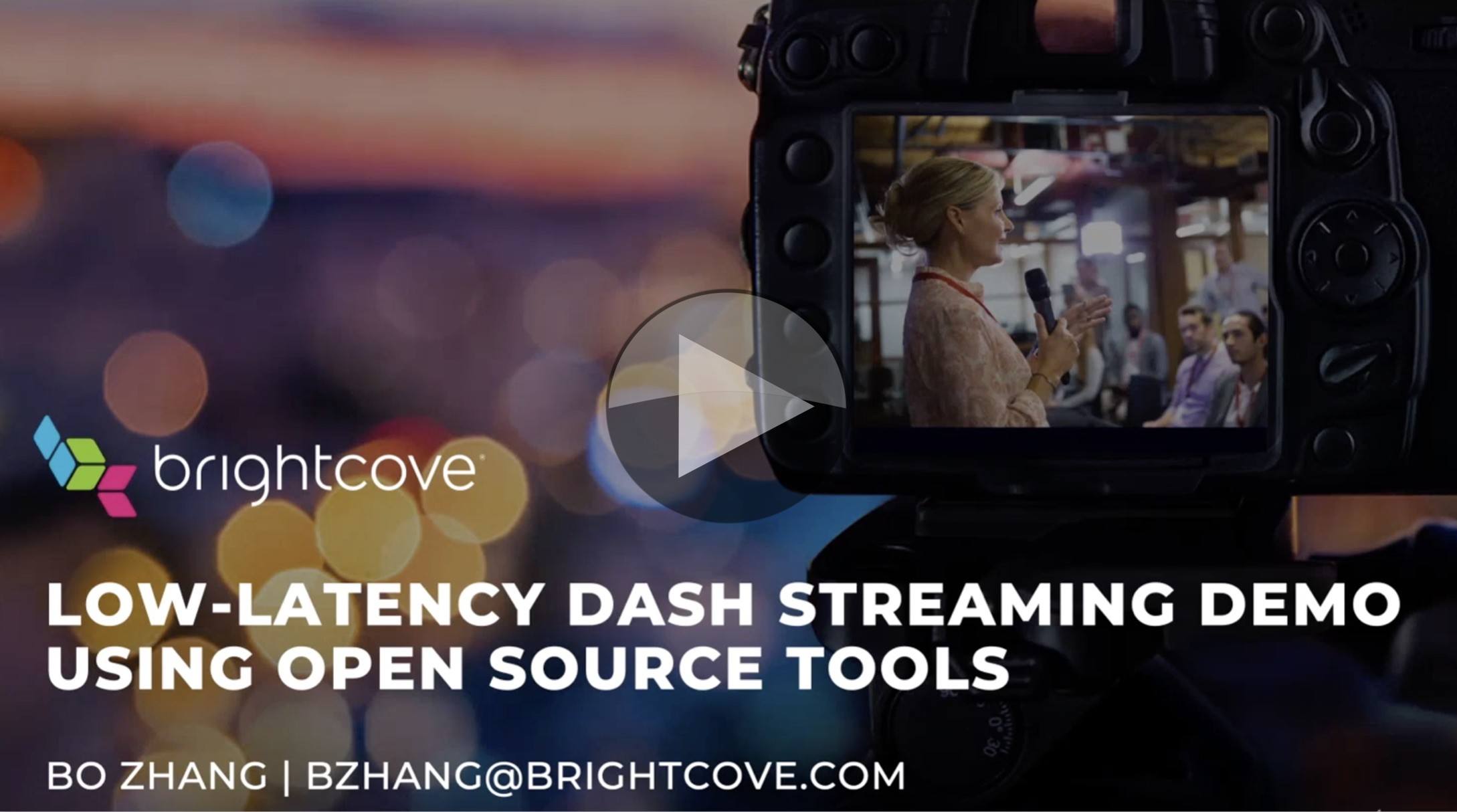Low Latency Dash also known as LL-DASH is a modification of MPEG DASH to allow it to operate with close to two seconds’ latency bringing it down to meet, or beat, standard broadcast signals.
Brightcove’s Bo Zhang starts by outlining the aims and methods of getting there. For instance, he explains, the HTTP 1.1 Chunked Transfer element is key to low-latency streaming as it allows the server to start sending a video segment as its being written, not waiting until the file is complete. LL-DASH also has the ability to state an availability window (‘availabilityTimeOffset’).
As LL-MPEG DASH is a living standard, there are updates on the way: Resync points will allow a player to receive a list of places where it can join a stream using SAP types in the ISO-BMFF spec, the server can send a ‘service description’ to the player which can use the information to adjust its latency. Event messages can now be inserted in the middle of segments.
Bo then moves on to explain that he and the team have set up and experiment to gain experience with LL-DASH and test overall latency. He shows that they decided to stream RTMP out of OBS, into a github project called ‘node-gpac-dash’ then to the dash.js player all. between Boston and Seattle. This test runs at 800×600, 30fps with a bitrate of 2.5Mbps and shows results of between 2.5 and 5 seconds depending on the network conditions.
As Bo moves towards the Q&A, he says that low-latency streaming is less scalable because a TCP connection needs to be kept open between the player and the CDN which is a burden.
Another compromise is that smaller chunk sizes in LL-DASH give reduced latency but IO increases meaning sometimes you may have to increase the chunk sizes (and hence latency of the stream) to allow for better performance. He also adds that adverts are more difficult with low-latency streams due to the short amount of time to request and receive the advertising.
Watch now!</a
More detail about the experiments in this talk can be found in Bo’s blog post.
Speakers
 |
Bo Zhang Staff Video System Engineer, Research Brightcove |


